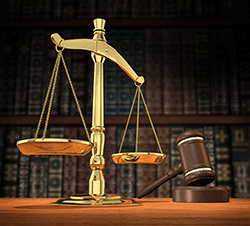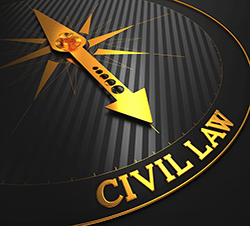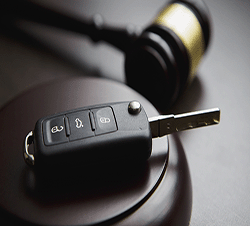
Nationwide Criminal Records Search
Publicly Available Criminal Records
Criminal Records Are Public Records
Understanding the intricacies of criminal records in the United States can complicated and often requires a basic understanding of the criminal justice system. Whether you're interested in running a background check on a friend, co-worker, or neighbor, they are all valid reasons to lookup someone's criminal history.
Since these are considered publicly available records, there are a many online resources where you can access this information. The first step in going through the process of running a criminal records search is knowing the complete name of the person you want to research. Then all you need to do next is find a reliable resource to do your research.
There are both government online resources where you can run a background check on someone, and also third-party public record databases you can use. Both have benefits however, by using third-party resources, you can typically run these searches anonymously.
What Are Criminal Records?
Criminal records, also known as rap sheets. These records are official documents that describe a person's criminal history. These records are compiled from various sources, including local police departments, sheriff's offices, state police, courts, and corrections facilities. They serve as a comprehensive log of an individual's interactions with the criminal justice system, including arrests, convictions, sentences, and even release information.
Types of Criminal Records
There are several types of public criminal records that are accessible online:
- Court Records: Documents that contain the proceedings and outcomes of court cases.
- Arrest Records: Documents that detail instances of an individual's arrest by law enforcement.
- Conviction Records: These records show when a person has been found guilty of a crime by a court.
- Sentencing Records: What the judge or jury decides to punish the defendant in a criminal court case
- Court Judgments: These are court orders for restitution, financial penalties or garnishment
- Active Warrants: These include both bench warrants and arrest warrants for someone to be apprehended, or appear in court
- Inmate Records: Information about individuals who are currently or have previously been incarcerated.
- Probation Orders: These are court orders for those that are convicted of a crime and serve their supervised sentence outside of jail
- Parole Orders: These are conditional releases from prison, which is supervised by a public officer
- Sex Offender Registries: Databases that track individuals convicted of sex-related crimes.
- Traffic Citations: While mostly small criminal infractions, some carry penalties of misdemeanors or felonies
How to Lookup Someone's Criminal Record
While there are multiple ways to lookup someone's criminal record history, some resources offer more in-dept results than others. Here are some of the most popular ways to run this search:
Public Records Search
Most criminal records are public records, meaning they are accessible to the public. You can run a criminal background check using your state's Department of Justice (DOJ) website, or the national DOJ website. You can also run a nationwide criminal background check using the FBI website. Keep in mind that these record searches require a fee to access. Plus you will need to register your personal information in order to use these official government websites.
Third-Party Services
Many online public record websites specialize in criminal records searches. These online resources compile data from various sources, providing a comprehensive background check for a fee. These services are convenient, but you must make sure they comply with the Fair Credit Reporting Act (FCRA) if used for employment or tenancy decisions.
Criminal Court Records
Each state's judicial branch has a central repository of criminal court records. Accessing these court records typically involves submitting a request form and a fee. You will want to check with your state's judicial branch website for more information. The response time can vary depending on the state, and there is typically a fee associated with each inquiry.
Freedom of Information Act (FOIA) Requests
For federal criminal records, you can file a FOIA request with your state, or the Federal Bureau of Investigation (FBI). This process is more involved and may require fingerprints and consent from the person you're investigating.
National Offender Search
The National Sex Offender Public Website (NSOPW) allows anyone to search for sex offenders anywhere in the United States. This tool is free to use and available to the general public.
DISCLAIMER: CriminalRecords.us aims to offer convenient, affordable, and timely access to public records generated by government entities. CriminalRecords.us is an independent service and is not connected to or endorsed by any federal, state, or local government or agency. As we are not the original source of the information provided through CriminalRecords.us, we cannot guarantee the accuracy, completeness, or currency of the information. CriminalRecords.us is not a consumer reporting agency as defined by the Fair Credit Reporting Act (FCRA), 15 USC § 1681 et seq. The information provided on this site cannot be used to determine an individual's eligibility for personal credit, employment, tenant screening, or any other purposes defined under the FCRA. Misuse of information from CriminalRecords.us for purposes such as stalking or harassment may result in civil and criminal penalties. By using CriminalRecords.us, users agree to comply with our terms of service and privacy policy, and acknowledge that they will not use the information for any purposes governed by the FCRA.



